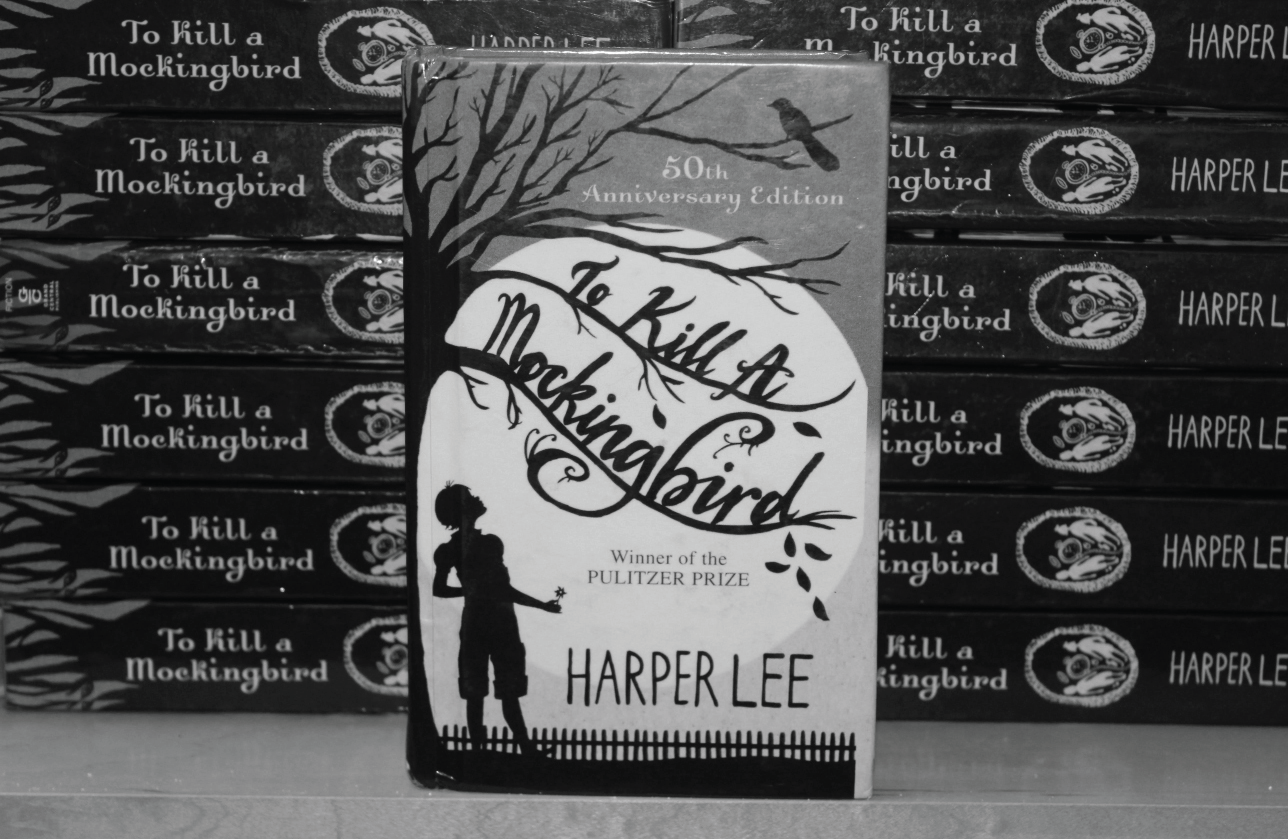
book room. Teachers have withdrawn this novel due to its racial content.
Since its publication, Harper Lee’s novel To Kill A Mockingbird (TKAM) has won several awards, including a Pulitzer Prize, three Golden Globes in the film adaptation category, and a Tony award for its play. For many years, San Marin has included this book in the English 9 curriculum. However, this year English 9 teachers have decided to temporarily remove the widely known novel due to concerns regarding its content and students’ comfort levels reading certain topics.
English teachers have collaborated regarding which novels students will read, with later involvement from the Novato Unified School District (NUSD) Board of Trustees and Education Services Team.
“In order to ensure that NUSD’s curriculum and materials are relevant, diverse, inclusive, and in alignment with California State Standards, the staff conducts reviews and evaluations periodically,” said Assistant Superintendent Jennifer Larson. “If the English teachers make any recommendations for changes, they will be reviewed by the Education Services Team and presented to the Board of Trustees for possible adoption.”
TKAM has been removed from some educational institutions in the United States due to the use of racial slurs and is currently categorized as optional reading.
“Students are free to check it out from our library or ask their teacher for a copy if they wish to read it,” said co-chair of the English department and English teacher Adam Williams. “It is not banned from San Marin, nor is it banned from NUSD.”
Other co-chair of the English department and English teacher MacKenzie Bedford was part of the group that decided to change the novel.
“The decision was made because although the book discusses necessary topics, there is an opportunity here to include a different story from a different perspective and include a voice that we do not typically get a ton of in classes,” Bedford said.
Prior to the change in curriculum, Bedford had her students read TKAM. She created lessons that connected the events in the book to modern day issues effecting the black community.
“We assigned some current articles about racial justice movements and unjust experiences Black Americans have in this country,” said Bedford. “Students were asked to read them and draw connections to the text’s exploration of race and justice.”
Junior Neyat Tesfay read TKAM before its removal in ninth grade. As a member of the Black community, she believes that while the book has a good message, it is outdated in today’s world.
“Everything is changing, so the world around us should adapt to it,” said Tesfay.
Currently, there is no substitute for TKAM, but a decision is planned to be made by the end of the first semester. “We are hoping to replace the book with another written by a different female BIPOC (Black Indigenous People of Color) author,” said Bedford. “I do not know if this book will return to circulation at our school. There are no immediate plans for that.”
English teacher Caroline McNally read TKAM when she was in middle school and appreciated the difference in perspective it brought her, but is looking forward to reading what is included next in the curriculum student required reading.
“I didn’t get to read a lot of books by people of color or by women when I was in school,” said McNally. “[TKAM] was one of my favorite books when I was younger, but it is also very exciting for me to see that these books are changing and evolving.”
































